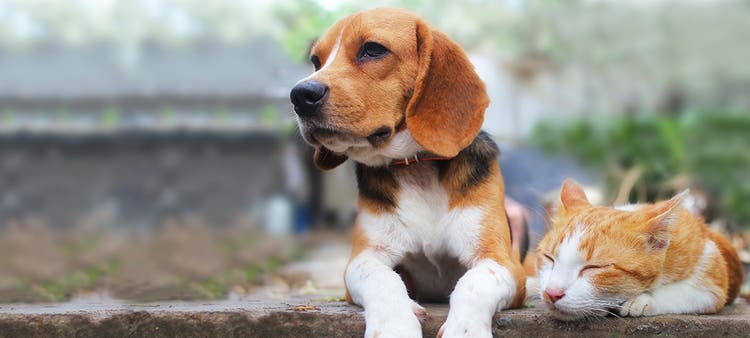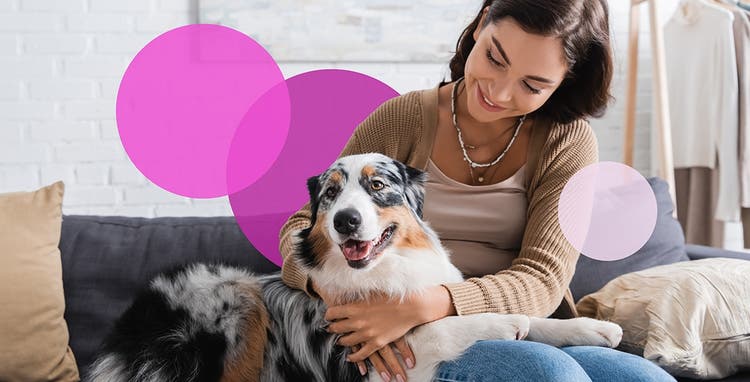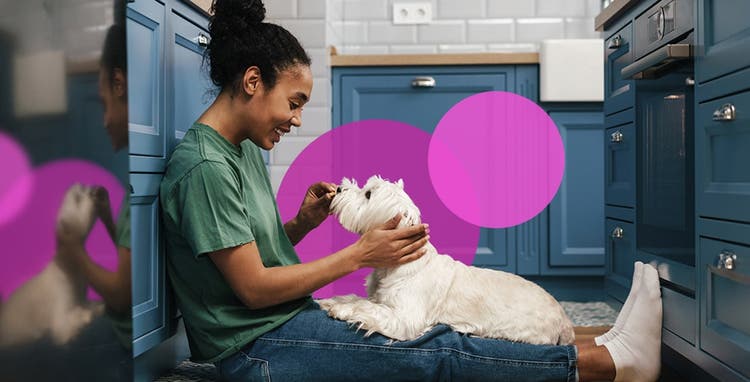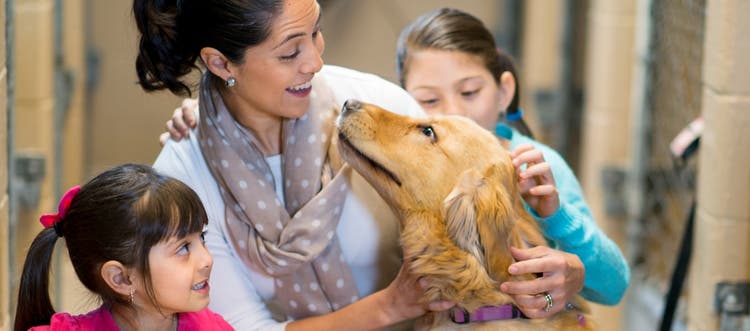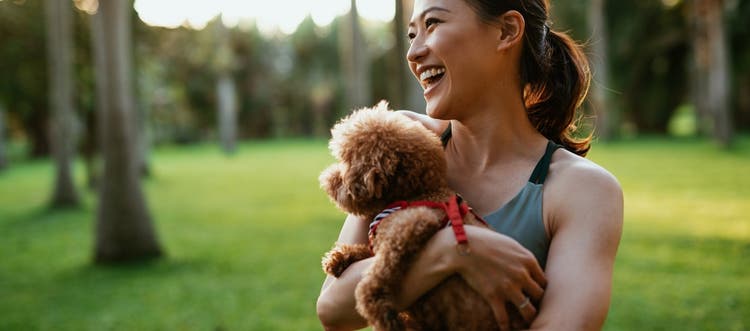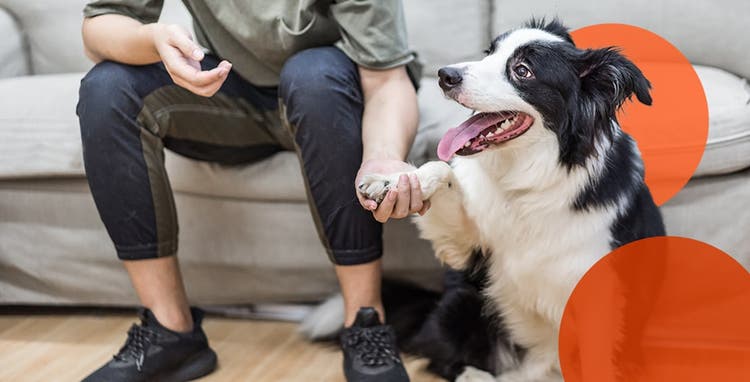How to encourage harmony between pups.
The prospect of bringing a cute, energetic puppy home is exciting, but you may face some hesitation if you already have an older dog. While personality is always a factor, younger and older dogs can get along well. Here's how to help the introduction process go more smoothly.
Steps for Introducing a Puppy to an Older Dog
Whether you're still deciding or have just brought a new puppy home, here are some things to keep in mind to help encourage harmony between your new and current dogs:
- Prepare your home (and your dogs). Make sure each dog has their own separate space where they can relax, and set up separate food stations. Set aside your older dog's chew toys and get the new puppy their own, so there's no sibling rivalry over playthings. Plan to take your new puppy to the vet early on for a checkup, vaccinations and parasite treatment/prevention such as deworming. Protecting your new puppy from fleas and intestinal worms will help protect your older dog, too.
- Meet on neutral territory for a brief period. Your older dog may feel territorial about their home, which can lead to aggression. Have another person bring the puppy to meet you in a public space, such as a park or tennis court. A meeting at a chain-link fence or tennis net is ideal, so they can sniff each other from behind the barrier.
- Take the dogs on a walk together. Invite a friend or family member to walk the puppy while you walk the older dog. A five- to ten-minute walk side by side can help them get used to each other.
- Bring them together on home territory. Once your puppy and dog have had a couple of meetings on neutral grounds, it's time to arrange an at-home meeting. But it's not quite time to bring the new puppy inside; instead, have them play in the yard together with leashes on, if it's an open yard, and unleashed, if it's a fenced-in yard.
- Bring the puppy inside. Before you do, however, make sure your older dog is outside the house so they don't see you bringing the puppy in. Older dogs may accept the transition more easily if they discover the new puppy already in the house.
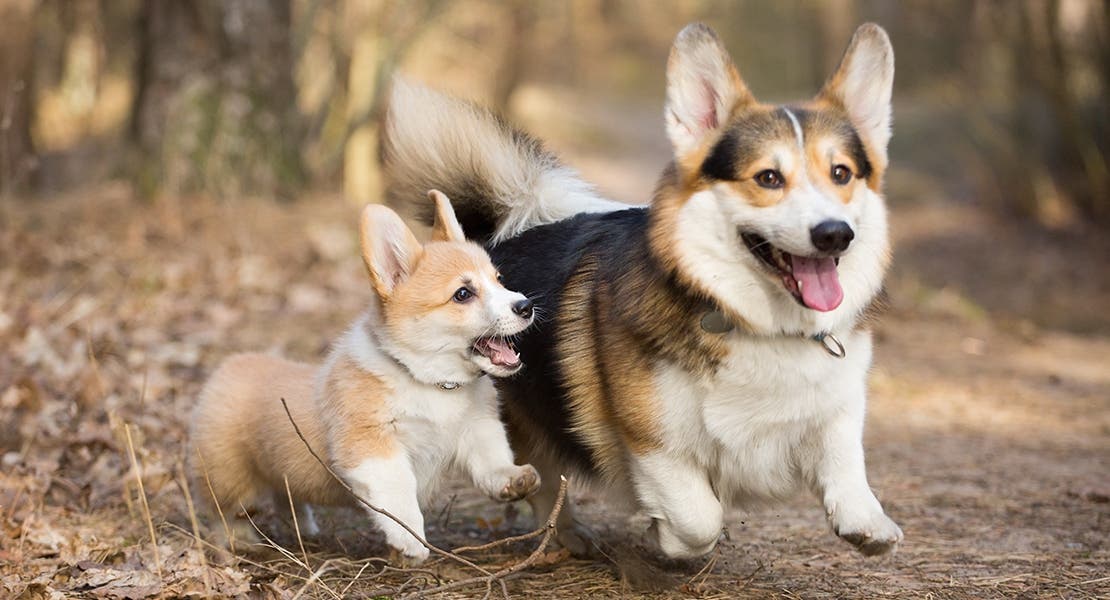
How Can I Help My Older Dog Accept My New Puppy?
You've finally introduced the puppy into the home, but now you're wondering, "Will my dog ever accept this puppy?" Your dog likely will get used to the puppy - and may even learn to like them! - if you're thoughtful and respectful about their inhibitions.
- Supervise carefully. Caution is important. A puppy socializes differently than an older dog. Puppies usually don't understand that playful biting and growling may not be fun for an older dog. Keeping an eye on the dogs while they interact doesn't just protect them from injuring each other; it also sends a reassuring message to your older dog that you will not allow the puppy to behave inappropriately.
- Keep your older dog on a routine. Disruption in eating and walking rituals can cause territorial issues. As you go about your normal routine, implement each step with the older dog before the puppy, including putting the leash on, filling the food bowl and having playtime.
- Quality time is key. Just like when a new baby arrives and a sibling appreciates special "mommy time," older dogs adjusting to new puppies welcome a little extra attention from their owners. Spend some alone time with your older dog so they feel loved and less jealous of the new addition to the household.
What Negative Reactions Should I Watch For?
Puppies won't always pick up on your older dog's social cues, so keep a close watch on their interactions. If your older dog is upset or uncomfortable, body signals might include:
- Raised fur on the back or the back of the neck
- Prolonged stares
- Growling or snarling
- Displaying teeth
- Hunched back
If your dogs show these signs, separate them before they have the chance to injure one another. Continue to carefully supervise their interactions as they adjust.
What Can My Older Dog Teach My Puppy?
The good news is that while this adjustment period may be stressful, your older dog can help with puppy training. Dogs learn from modeling other dogs' behaviors.
Housebreaking often becomes easier, as puppies tend to mimic older dogs and relieve themselves at the same time. If you've taught your older dog to obey commands, eat at proper times and follow a regular walking schedule, your puppy will likely learn from imitation.
Throughout the process, make sure all your dogs receive lots of pets, playtime and attention to help maintain a calm and peaceful household. Following these tips and being thoughtful about introducing your new and current dogs will help the transition be less stressful - for dogs and people alike.
Related Articles
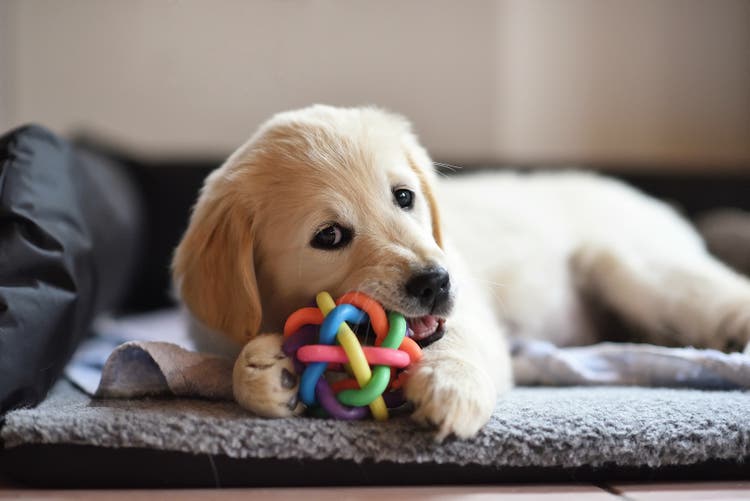
Puppy Parenting: Our Downloadable Guide
New puppy? Whether this is your first go-round or your fifth, we know that so much goes in to raising healthy, happy pups. Check out our free guide, also available to download!

